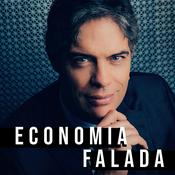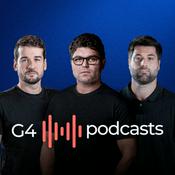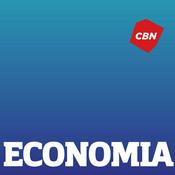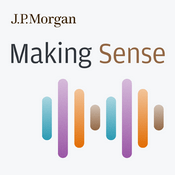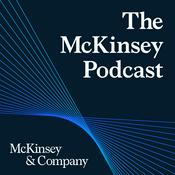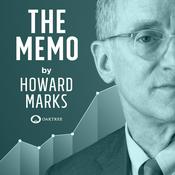Episódios Disponíveis
5 de 236
- Todd Rapp, CEO, Fortress Multi-Manager GroupTodd Rapp got his career started in equity options at Goldman Sachs in the late 1990’s, a wild time in which a bubble inflated and burst and provided critical lessons in both gamma and vega risk in the process. Now the CEO of the Fortress Multi-Manager Group, Todd leans heavily on his derivatives DNA in the areas of sourcing uncorrelated return streams, portfolio construction and both measuring and managing risk. Early training has shaped his long-term view that markets express probability through delta, option curvature, and distribution structure rather than through static price movements.Our conversation connects early risk management lessons to today’s landscape, where market concentration echoes 1999, yet correlation conditions differ meaningfully. Todd notes that unlike the prior cycle, today’s equity index shows low intra-index correlation, making dispersion, risk sizing, and factor neutrality more fundamental for return generation.We also explore how the multi-manager architecture seeks to harness uncorrelated strategies packaged with capital efficiency and leverage, producing return streams engineered to operate through dispersion. Todd highlights how understanding optionality remains central to managing equity factor shocks, beta instability, and correlation convergence events.Lastly, we touch on the human capital side of building a business. Having interviewed hundreds of risk takers over the years, Todd looks for individuals who have something to prove, suggesting that having experienced adversity is important because, “if you don’t have a significant drawdown in your past, it’s in your future.”I hope you enjoy this episode of the Alpha Exchange, my conversation with Todd Rapp.--------43:56
- Jessica Stauth, CIO, Systematic Equity, Fidelity InvestmentsIt was a pleasure to welcome Jessica Stauth, CIO for Systematic Equities at Fidelity Investments, to the Alpha Exchange. Our discussion explores how quant investing has evolved through cycles of market stress, technological change, and today’s extraordinary concentration in the equity landscape. Reflecting on her start in markets in the aftermath of the 2007 Quant Quake and the onset of the global financial crisis, Jessica highlights the foundational lesson that markets contain far more uncertainty than models can fully capture — a theme as relevant today as investors confront narrow leadership and elevated fragility. She explains how early dislocations demonstrated the limits of traditional risk models and the dangers of crowding, especially when many quantitative strategies rely on similar signals or hedging techniques. Turning to the present, Jessica describes how her team builds equity strategies designed to function across regimes, emphasizing the need for diversified risk models, guardrails that prevent overfitting, and a clear understanding of how macro shocks can overwhelm bottom-up stock selection. She details the evolution of factor research, including the durability of broad categories such as value, momentum, and quality, while outlining how competition and data availability reshape their effectiveness over time. Lastly, she discusses the growing role of non-traditional data — from earnings-call text to machine-learning tools and LLM-driven sentiment extraction — while underscoring the importance of broad, consistent datasets that can be applied across global universes. Against the backdrop of the S&P 500’s heavy top-weighting, Jessica details how diminished breadth affects opportunity sets, investor demand for alternative approaches, and the search for alpha outside the most crowded areas of the market. I hope you enjoy this episode of the Alpha Exchange, my conversation with Jessica Stauth.--------53:19
- Price is the Only FundamentalThey say there’s always a bull market somewhere and a chart on doom commentary has surely been up and to the right. Perhaps it’s been the joint decline in the equity and crypto markets. NVDA is down 10% in November and Bitcoin is down almost twice that. Perhaps it’s been that there wasn’t a hard and fast enough of a catalyst to point to…no trade war, Powell presser, CPI surprise or earnings shortfall. These would have at least left us with plausible drivers, satisfying our need for markets to make sense. But when price operates as the only fundamental, sell-offs in asset prices take on much greater meaning.If there’s one idea that best captures my own curiosity about markets it lies in studying our presence in them. And here’s where the Soros theory of reflexivity is so relevant, especially to modern day risk-taking. Reflexivity is a brilliant concept and price is central to it. Price is surely an outcome that results from changes in economic data, corporate profits and adjustments in the stance of monetary policy. Today, price is more properly thought of as a driver of wealth, which in turn, allows it to drive investment behavior and also narratives. In the process, it can actually shape fundamentals.Through this lens, I share some of my recent thinking on the risk structure of the equity and crypto markets. I hope you find this interesting and useful. I wish you a wonderful, relaxing and highly caloric Thanksgiving holiday.--------21:03
- Megan Miller, Senior Portfolio Manager and Head of Options Solutions, Allspring Global InvestmentsWelcome back to the Alpha Exchange. In today’s episode, I am joined by Megan Miller, Senior Portfolio Manager and Head of the Options Solutions team at Allspring Global Investments. Her career spans the extremes of market volatility—from learning options trading during the GFC to now overseeing option-based strategies across a $600 billion platform. The conversation centers on how her team uses a GARCH-like modeling framework as part of a systematic approach to forecast future realized volatility. From this, signals emerge as to which options are over or underpriced.Megan explains how the democratization of options has reshaped implementation. While call overwriting may appear simple, doing it efficiently at scale requires advanced technology, rule-based construction, and close attention to liquidity across both U.S. and global underlyings. She outlines how index-option overlays can deliver income, preserve stock-specific alpha from the underlying equities, and manage beta more deliberately—an especially relevant point as today’s markets continue to show wide dispersion between single-stock moves and index-level volatility.As client demand shifts with the market cycle, Megan highlights growing interest in income-oriented solutions, alongside renewed attention on hedging amid concerns around rates, AI-driven valuations, and geopolitical risk. She also underscores the rising importance of customization—whether for tax management, factor tilts, or exposure constraints.Megan closes with insights on mentorship, learning, and the value of embracing every stage of a career.I hope you enjoy this episode of the Alpha Exchange, my conversation with Megan Miller.--------44:18
- Jordi Visser, CEO of Visser Labs and Head of AI Macro Research at 22VOn this episode of the Alpha Exchange, I’m pleased to welcome back Jordi Visser, CEO of Visser Labs and Head of AI Macro Research at 22V. Our conversation centers on one of the most consequential themes in markets today: the intersection of artificial intelligence, exponential innovation, and market structure. With Nvidia’s historic rise as a backdrop and AI’s increasing integration into every sector, Jordi pushes back on the tendency to label this cycle a “bubble,” arguing that AI is more akin to electricity — an enabling technology whose applications will permeate everyday life. Demand for compute remains effectively infinite, he notes, and the supply shortfalls in GPUs, data centers, and power capacity shape how investors should think about the buildout phase.Jordi also lays out a framework for navigating volatility in sectors tied to AI buildout — including how to handle 20–30% drawdowns — and why estimate revisions matter more than multiple expansion from here. Beyond markets, we explore the labor dynamics of exponential technology: the K-shaped economy, margin pressure at retailers, and why he believes labor participation will keep drifting lower even without mass layoffs.Finally, we examine the policy environment. Here Jordi asserts that the Fed’s framework is backward looking and misses how humanoids, robotaxis, and accelerated drug discovery may drive deflationary pressures.I hope you enjoy this episode of the Alpha Exchange, my conversation with Jordi Visser.--------55:48
Mais podcasts de Negócios
Podcasts em tendência em Negócios
Sobre Alpha Exchange
The Alpha Exchange is a podcast series launched by Dean Curnutt to explore topics in financial markets, risk management and capital allocation in the alternatives industry. Our in depth discussions with highly established industry professionals seek to uncover the nuanced and complex interactions between economic, monetary, financial, regulatory and geopolitical sources of risk. We aim to learn from the perspective our guests can bring with respect to the history of financial and business cycles, promoting a better understanding among listeners as to how prior periods provide important context to present day dynamics. The “price of risk” is an important topic. Here we engage experts in their assessment of risk premium levels in the context of uncertainty. Is the level of compensation attractive? Because Central Banks have played so important a role in markets post crisis, our discussions sometimes aim to better understand the evolution of monetary policy and the degree to which the real and financial economy will be impacted. An especially important area of focus is on derivative products and how they interact with risk taking and carry dynamics. Our conversations seek to enlighten listeners, for example, as to the factors that promoted the February melt-down of the VIX complex. We do NOT ask our guests for their political opinions. We seek a better understanding of the market impact of regulatory change, election outcomes and events of geopolitical consequence. Our discussions cover markets from a macro perspective with an assessment of risk and opportunity across asset classes. Within equity markets, we may explore the relative attractiveness of sectors but will NOT discuss single stocks.
Site de podcastOuça Alpha Exchange, Market Makers e muitos outros podcasts de todo o mundo com o aplicativo o radio.net
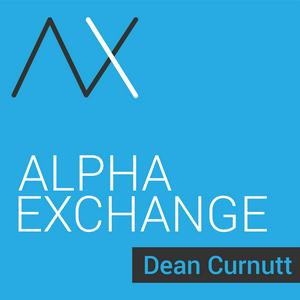
Obtenha o aplicativo gratuito radio.net
- Guardar rádios e podcasts favoritos
- Transmissão via Wi-Fi ou Bluetooth
- Carplay & Android Audo compatìvel
- E ainda mais funções
Obtenha o aplicativo gratuito radio.net
- Guardar rádios e podcasts favoritos
- Transmissão via Wi-Fi ou Bluetooth
- Carplay & Android Audo compatìvel
- E ainda mais funções


Alpha Exchange
Leia o código,
baixe o aplicativo,
ouça.
baixe o aplicativo,
ouça.


